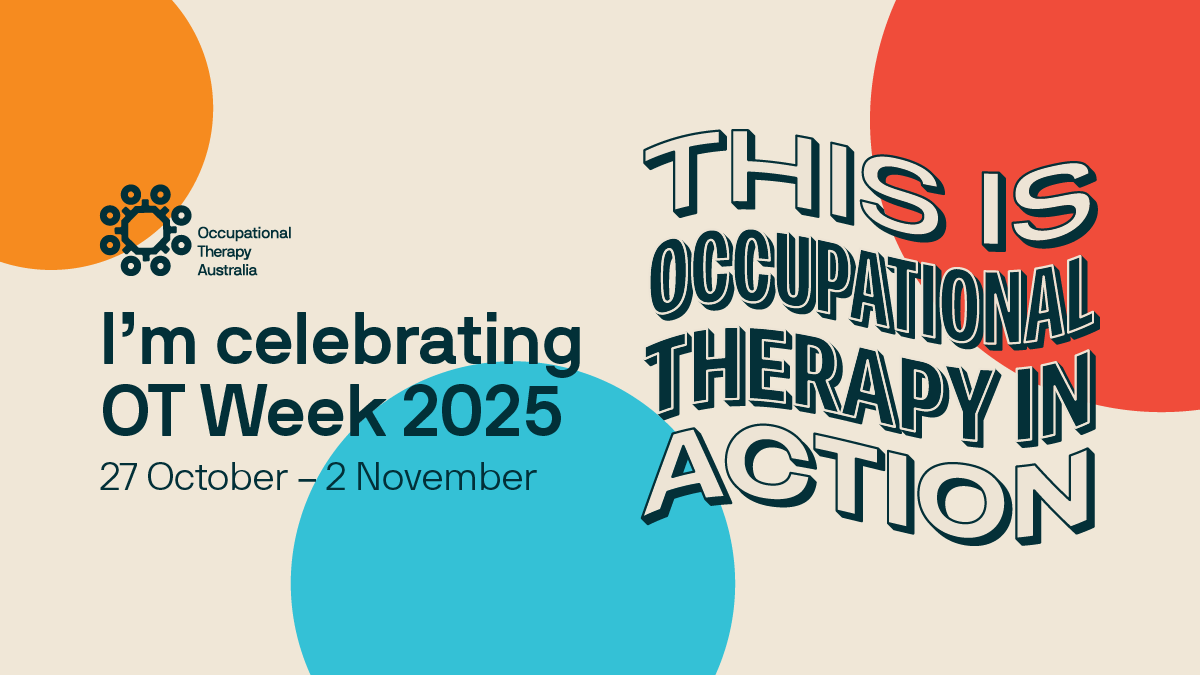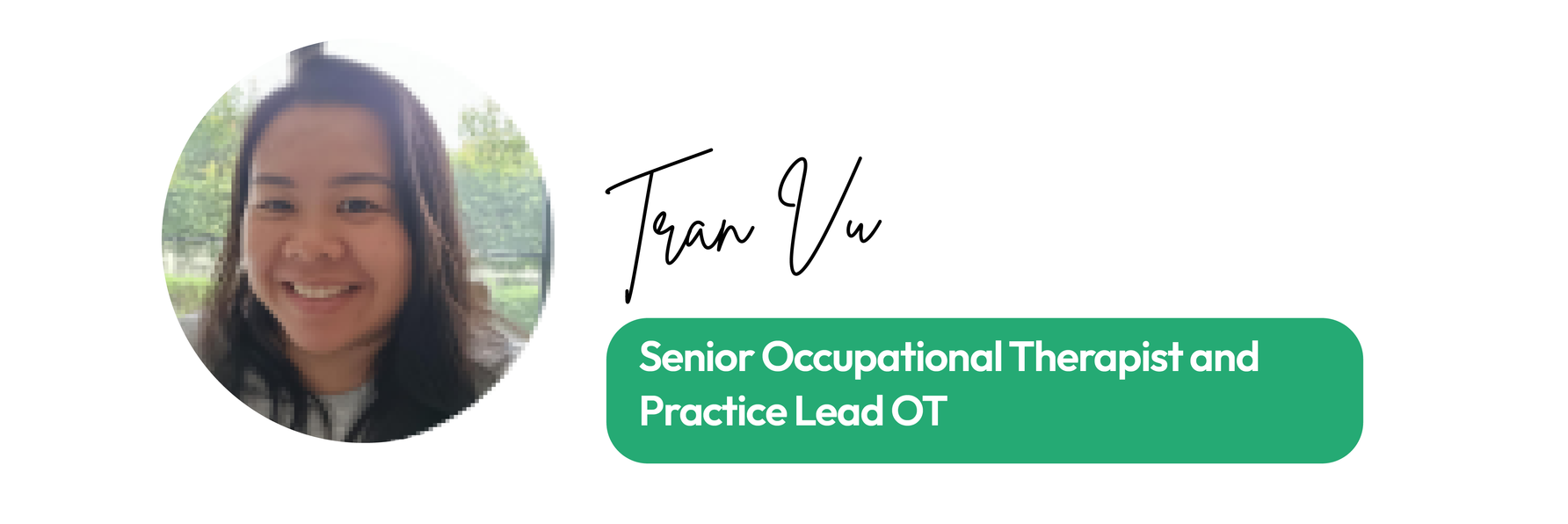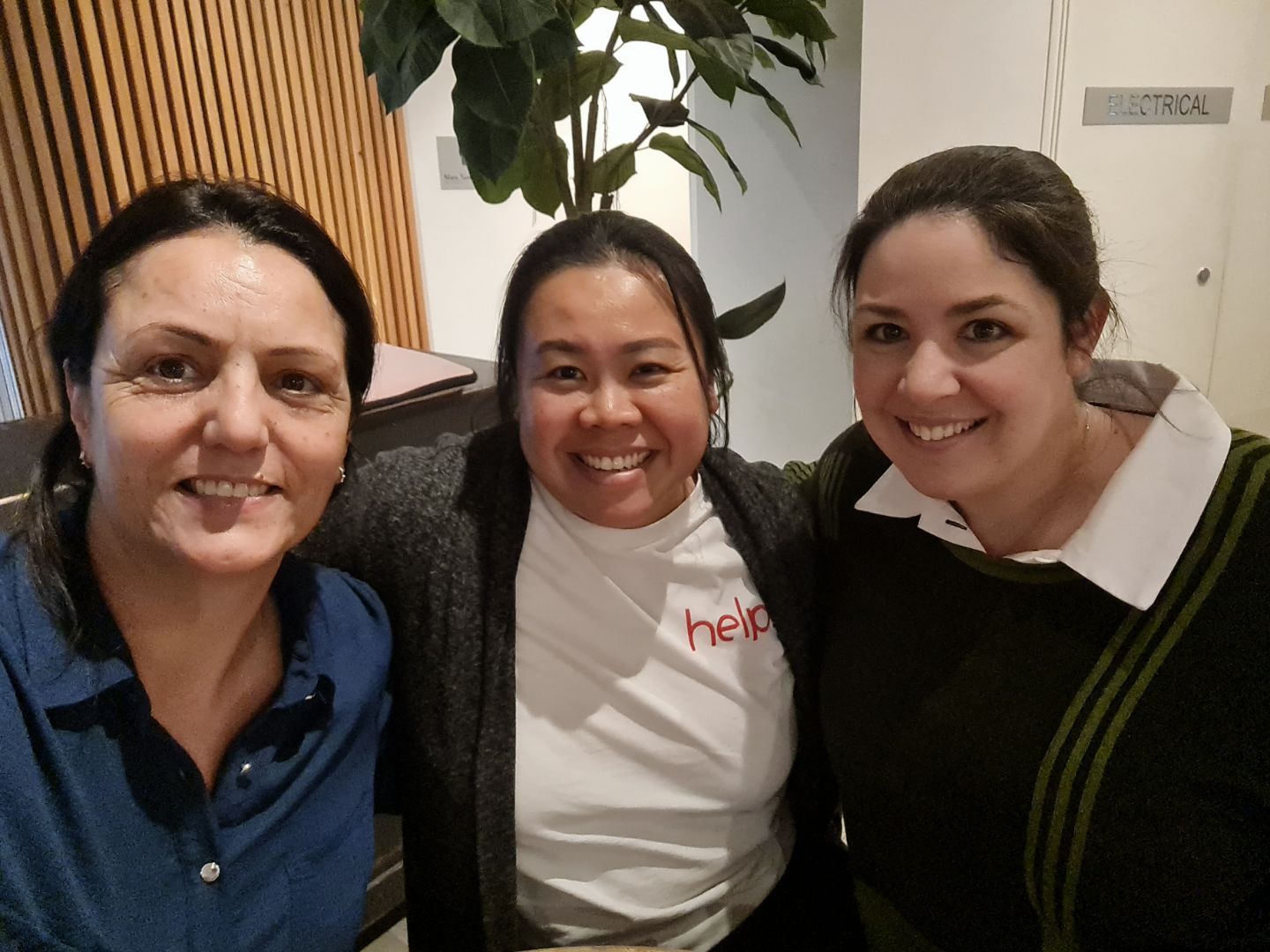Occupational Therapy in Action: A Holistic Lens Through the PEO Model

As we celebrate OT Week 2025 with the theme “Occupational Therapy in Action,” it’s a chance to reflect on the heart of our profession- supporting people to live healthy, meaningful, and fulfilling lives.
One of the most powerful frameworks we use is the PEO Model: Person, Environment, and Occupation. Our Practice Lead, Tran Vu, explains below.
This model highlights the dynamic interaction between an individual, the environments they live in, and the occupations (activities) they engage in. Health is not just about physical care—it is holistic, shaped by body, mind, community, and purpose.
The Person
The person includes not only physical abilities but also cognitive, emotional, social, and spiritual dimensions.
OTs work with people to build on their strengths and address barriers, whether that’s through pain management, developing coping strategies, or enhancing cognitive skills.
Health is supported when people feel empowered, capable, and connected to their sense of identity and values.
The Environment
Health cannot be separated from the environment—our homes, workplaces, communities, and cultural contexts.
OTs advocate for accessible spaces, inclusive workplaces, and supportive communities.
By adjusting environments—whether with technology, design, or social supports—we create opportunities for participation, safety, and belonging.
The Occupation
Occupation refers to the activities that give life meaning—self-care, work, leisure, play, and community participation.
OTs help people to find balance across these domains, reducing stress and supporting wellbeing.
Whether it’s helping a child join in sport, an adult return to employment, or an older person maintain valued roles, occupation is at the centre of health.
OT in Action: Holistic Health
When the person, environment, and occupation fit together, health outcomes improve. Occupational therapists put this into action by:
Promoting mental health: Through meaningful engagement in daily routines, hobbies, and social connection.
Preventing chronic disease: Supporting lifestyle changes in nutrition, physical activity, and stress management.
Enhancing community wellbeing: Building inclusive spaces where everyone can participate.
Supporting resilience: Helping people adapt to life transitions, illness, or disability with dignity and independence.
A Holistic Vision for OT Week 2025
“Occupational Therapy in Action” means more than supporting daily tasks—it means addressing the whole person, their environment, and the occupations that make life rich and purposeful. By applying the PEO Model, occupational therapists foster not only independence, but also wellbeing, resilience, and community connection.
This OT Week, let’s celebrate the ways OTs bring health to life, holistically, inclusively, and meaningfully.

Why celebrate OT?
We see the impact of occupational therapy every day. OT empowers people to overcome challenges, build confidence, and lead fulfilling lives. Let’s take this opportunity during OT Week to celebrate the amazing work that OTs do and highlight their contributions to our communities.
How to get involved in OT Week 2025
You can celebrate OT Week 2024 with helpz in a number of ways:
- Share your story: We encourage you to share your experiences with occupational therapy on social media using the hashtag #OTWeek2025.
- Connect with us: If you or someone you know could benefit from occupational therapy services, please contact helpz.
- Follow us for more: Follow us on social media to stay updated.
For more information on OT Week 2025 and how you can participate, visit the
Occupational Therapy Australia event page.

News & Insights
Check Our Latest Resources







